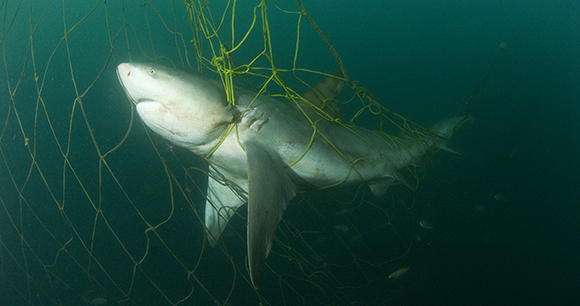
Washington, DC—Make Stewardship Count, a coalition of more than 90 global marine conservation organizations, experts and academics, is incredibly disappointed by a recent decision by the Marine Stewardship Council (MSC) to delay full implementation of a new Fishery Standard that would raise the bar for sustainable fisheries.
On January 31, MSC announced that it was allowing fisheries an additional two years to implement the revised standard, known as “version 3.0.” Fisheries that are new to the program will now have until 2026 to implement version 3.0, while currently certified fisheries will have until 2030.
MSC’s Fisheries Standard provides a framework to assess the environmental impacts and effective management of fisheries. Fisheries adhering to the standard’s sustainability criteria are allowed to display the MSC “blue fish tick” ecolabel on their products. At present, more than 20,000 products globally display this ecolabel.
“This delay is a massive step backward both for protecting endangered species and ensuring good governance in fisheries,” said Kate O’Connell, senior policy consultant for the Marine Life Program at the Animal Welfare Institute. “We fear that the council, which claims to operate the world’s leading ecolabel for wild-caught seafood, is caving to industry pressure instead of making substantive changes that are critically needed to ensure its stated goal of ‘oceans teeming with life.’”
MSC’s decision comes nearly a year after the council began implementing the revised standard and follows several years of hard work by the council, fishing industry representatives, and conservation groups to create a stronger standard for fisheries. MSC also announced recently that it would conduct an independent review of its Evidence Requirements Framework (ERF), a method meant to ensure that accurate information is being used to assess fisheries, to see if it could be implemented in a way that limits complexity and cost. Make Stewardship Count is concerned about the transparency of this ERF process.
“After wide-ranging improvements to MSC’s standard were weakened during the review process, the current standard represents what is minimally acceptable to have healthy oceans and fisheries,” said Shannon Arnold, associate director of marine programs at the Ecology Action Centre. “Even so, MSC seems more interested in keeping fisheries in its program and generating profits than upholding its mission.”
Initially, MSC’s standard review process provided a historic opportunity for it to drive real changes in global fishery management over the next decade. In releasing the revised standard in October of 2022, the council declared that it had followed the “most comprehensive review of the MSC Fisheries Standard ever undertaken” in its 25-year history.
However, it soon became apparent to the Make Stewardship Count coalition that the MSC label would continue to be awarded to fisheries that routinely catch vulnerable nontarget animals, waste excessive amounts of sea life, damage ecosystems, and target overfished species. Throughout the process, fishery representatives balked at having to provide better information about what they are pulling out of the water, how they are fishing, and the associated impacts on endangered species and the environment.
“If MSC further weakens its ecolabel requirements, then it is simply certifying the status quo and not advancing any real changes or rewarding those fisheries that have made strides in reducing their environmental impact,” said Dr. Iris Ziegler, head of international cooperation at SHARKPROJECT International. “MSC is failing to act as a driver for improvements on the water, and this delay will only exacerbate the situation for endangered, threatened and protected marine species, particularly sharks.”
“With this latest move, MSC continues to lose credibility as a global leader of truly sustainable fishing,” said Dr. Cat Dorey, independent fisheries advisor. “The initial timelines provided to fisheries to implement this updated standard were generous and provided ample time to make the necessary changes. Consumers are increasingly aware of sustainability claims, and MSC is running the risk of losing its market power.”
Iris Ziegler, SHARKPROJECT International
[email protected], +49 174-379-5190 (Deutsch, English)
Shannon Arnold, Ecology Action Centre
[email protected], (902) 329-4668 (English)
Kate O’Connell, Animal Welfare Institute
[email protected], (860) 990-7858 (English, Spanish)
Cat Dorey
[email protected], +61 425-368-323 (English)
The Animal Welfare Institute (awionline.org) is a nonprofit charitable organization founded in 1951 and dedicated to reducing animal suffering caused by people. AWI engages policymakers, scientists, industry, and the public to achieve better treatment of animals everywhere—in the laboratory, on the farm, in commerce, at home, and in the wild. Follow us on Facebook, X (formerly Twitter), and Instagram for updates and other important animal protection news.
The Make Stewardship Count Coalition is an international coalition of more than 90 NGOs and experts that aim to drive urgently needed improvements to the MSC Standard and certification process. It is important for consumers to be able to trust the MSC label and be confident that it represents seafood products that are sourced sustainably and responsibly and are not associated with unethical, destructive or wasteful fishing practices.